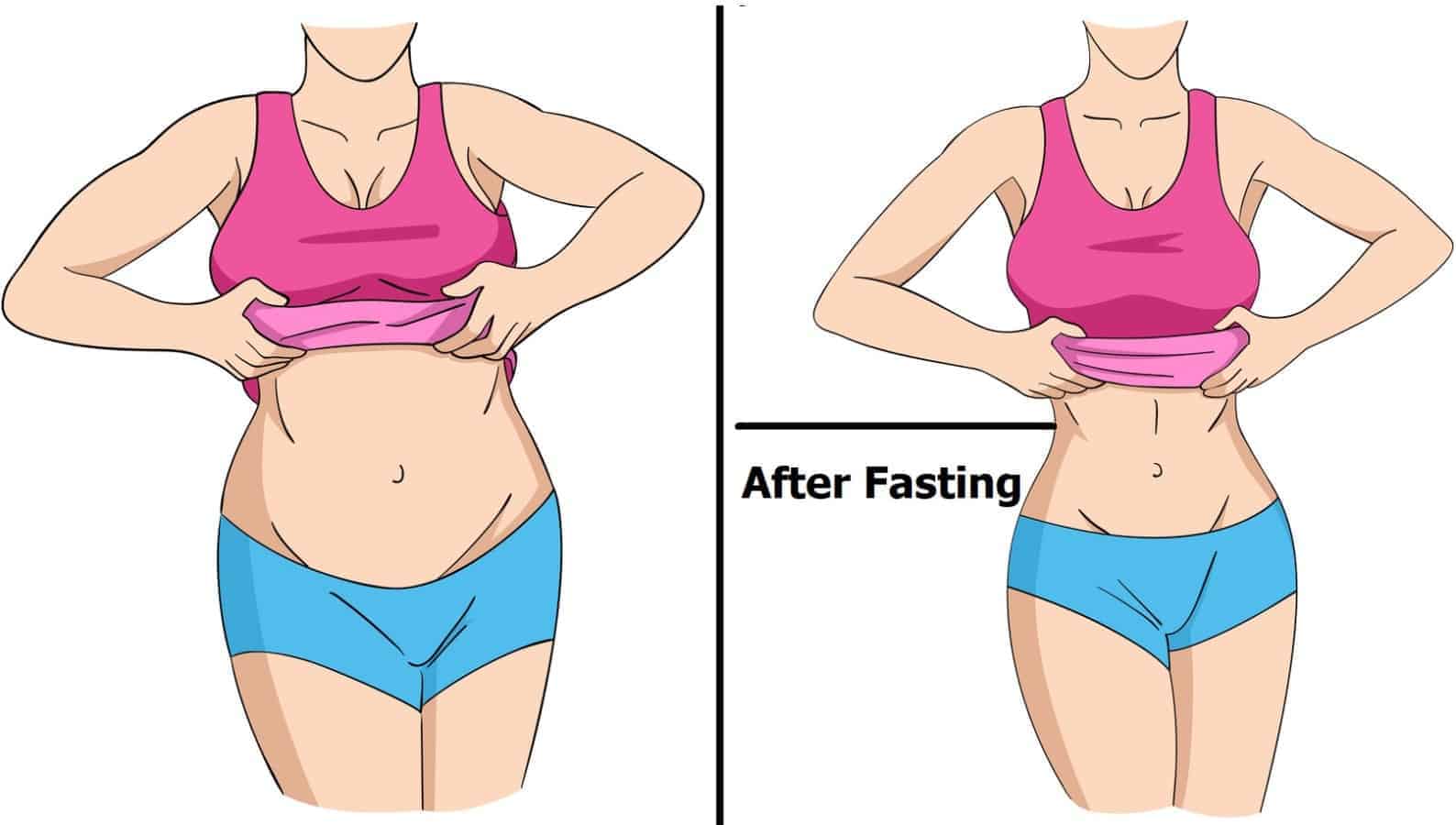Of course not eating anything is going to reduce your calorie intake and help you lose weight. But you might be amazed to learn how fasting can help you lose weight. Additionally, you will also rebuild and strengthen your body.
All of us fast for some length of time. The type of fast that you are most familiar with is the one that you do overnight while you sleep. This is why our morning meal is called ‘breakfast,’ because we are breaking our fast from the previous night. Some people fast for spiritual reasons, for example, during the season of Lent or during Ramadan.
In this article, we will look at the types of fasting programs that you can try, the science behind why fasting helps you see positive body changes, and give you some guidance for what type of fasting might be best for you.
Here’s How Fasting Helps You Lose Weight, Rebuild, and Strengthen Your Body
Consult your wellness professional prior to starting a program of fasting, especially if you are pregnant or nursing or if you have certain conditions like anemia, diabetes, or adrenal fatigue.
Research shows why fasting helps rebuild and strengthen your body
Fasting not only helps to lose weight, but helps our body to conserve the energy that it would normally digest food and lets us use that energy toward healing when we are sick or injured instead.
When animals are injured, they go to a source of water and stay near it until they are healed rather than continuing to seek food.
Restricting our calorie intake during illness is a way to help our bodies rebuild themselves. Research on mice who were given a program of fasting showed that the mice that were fasting had slower growth of cancerous tumors. This is an amazing result. The study found that not only could a fasting program slow tumor growth. But that it was also ‘effective at suppressing tumorigenesis in mice genetically predestined to tumor development.’ Mice that were more likely to develop tumors due to mutated genes were less likely to develop them when they were on a program of fasting.
Related: This Ancient Tea Helps With Anxiety and Weight Loss
A study in the American Journal of Clinical Nutrition looked at short-term modified alternate-day fasting as a new dietary strategy for weight loss and for heart health protection for adults that were overweight or obese. Over a 10 week study period, the researchers found that after 8 weeks, participants had not only lost weight, but they had lost body fat percentage as well. In addition to the weight loss, the participants in the study had decreased their total cholesterol, LDL cholesterol, and triacylglycerol concentrations. They also had lower systolic blood pressure.
What type of fasting program should you try?
- Juice fast. This type of fasting program is a liquid-based diet where you get all of your nutritional needs from drinking only juice and avoiding solid foods.
- Alternate day fasting. This is a 24-hour period of not eating, followed by a 24-hour period where you are allowed to eat regular meals
- 16-hour. Choose any 8-hour time frame for eating during the day and for the other 16 hours, and avoid any caloric intake. For example, you might choose 9:00 am to 5:00 pm for your eating hours, which means that you should no eat prior to 9:00 am or after 5:00 pm.
- 20-hour. A 20-hour fasting program is similar to a 16-hour program except that your window for eating is shortened to a 4-hour time frame.
- Multiple days. Fasting for multiple days can be the most challenging program and it requires some additional preparation. People who fast for more than 24 hours prepare by starting with a juice fast for at least 24 hours first. It is possible for human beings to go 7 days or longer (many people have completed 40-day water fasts) with only water without severe health effects.
If you select a fasting program to try, plan to stick with it for a period of 2 weeks at a minimum. That is, unless you experience health problems as a result. This will allow your body to learn to use up stored fat during the times that you are fasting.
Your weight loss and other body needs may differ from those of another person depending on your health goals. For example, it may be important for you to consume protein following a workout to build muscle, so you may want to make sure that your fasting program does not interfere with your training. Consult a nutritional specialist if you have concerns about what will work best for you.
Research shows why you won’t need to worry about eating too much after fasting
Research published in the Journal of the International Society of Sports Nutrition tells us how fasting is not going to lead to an all out calorie splurge after we have gone for a period of time without food, even if we are exercising.
The study of alternate day fasting and cardiovascular exercise found that participants who did 25 minutes of moderate-intensity cardio three times per week were actually less likely to cheat on days that they were not allowed to eat than if they were not following intermittent fasting.
Would you try a fast to lose weight, or rebuild your body? Share with us in the comments!

















